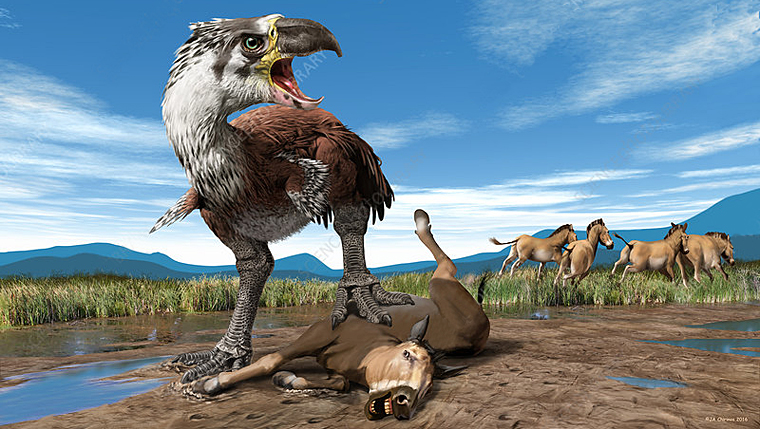
Want a six-foot talking Terror Bird? How about a dwarf Stegosaurus? Miniature Wooly Mammoth, anyone? Get ready; genetic engineering is about to explode into the commercial marketplace, bringing us the strange excitement of all kinds of new and intriguing designer pets.
You may think I’m kidding, but if the scientific marketplace has its way good ole’ Fido may well lose his place as boy’s best friend. And while we’re talking canines, take a look at what we’ve done to that particular creature. You want a short-haired, long-eared, stub-tailed, bug-eyed, hang-tongued canine companion? No problem, we can breed it for you. Just imagine what will be possible when consumer-oriented commercial genetic engineering gets its hot little hands on Poochy.
Yet Poochy is the least of it; let me remind you of one basic scientific truth: ontology recapitulates phylogeny! For those of you who don’t recall the wisdom of ninth-grade biology, let me refresh your memory. As we watch the gestation of an animal from fertilized egg onwards as an embryo develops, we observe various stages of evolution played out before our eyes. In the case of humans, an early embryo looks very much like that of a chicken, briefly displays amphibian gill-like structures and for a while even has the cutest little tail. Everything we’ve ever been is deeply encoded in our DNA, right there for the picking, and the same is true for all animals.
Moreover, science now has the ability to extract genetic information from the “soft” tissues of frozen remains, like those of the Wooly Mammoth. In no time at all, our combined know-how will result in the magic of designer animals; then free market forces will take over.
The market for exotic pets is already huge. People keep big cats, anacondas, various apes, monkeys, tarantulas, iguanas and so forth around the house or in the yard. Many of these animals are dangerous, obviously a big part of their appeal. It’s been popular for a long time. In the 1950’s my grandfather rented a winter-time house in Florida, bought a cute little baby crocodile and kept it in a bathtub. After several months of a diet of hot pastrami and chicken liver it grew to two feet long, and being every inch a crocodile gave my grandfather a nasty bite on the end of his index finger, effectively severing their bond of loyalty. My grandfather bundled the little croc in a towel and released him into a small pond on the nine-hole golf course across the street. Similarly abandoned exotic pets like Burmese Pythons have thus transformed the Everglades.
So, I do foresee some problems. Cleaning up after your dog is one thing, cleaning up after your mini-mammoth is another. A six-foot flightless Terror Bird, once the supreme carnivorous predator of South America, could be real handful, combining the curiosity and intelligence of Polly-the-Parrot with a razor-sharp beak and enough jaw-strength to snap a human thigh bone like a toothpick. And of course, there is the ultimate predator, T-Rex; every boy wants to have one of those. I can see it now, a miniature T-Rex three feet tall striding down the sidewalk, muzzled of course, and on a leash.
Is there danger in all this? Of course there is, just as certain breeds of dogs are dangerous. But…hey, let the free market decide, after all, it’s the job creator!